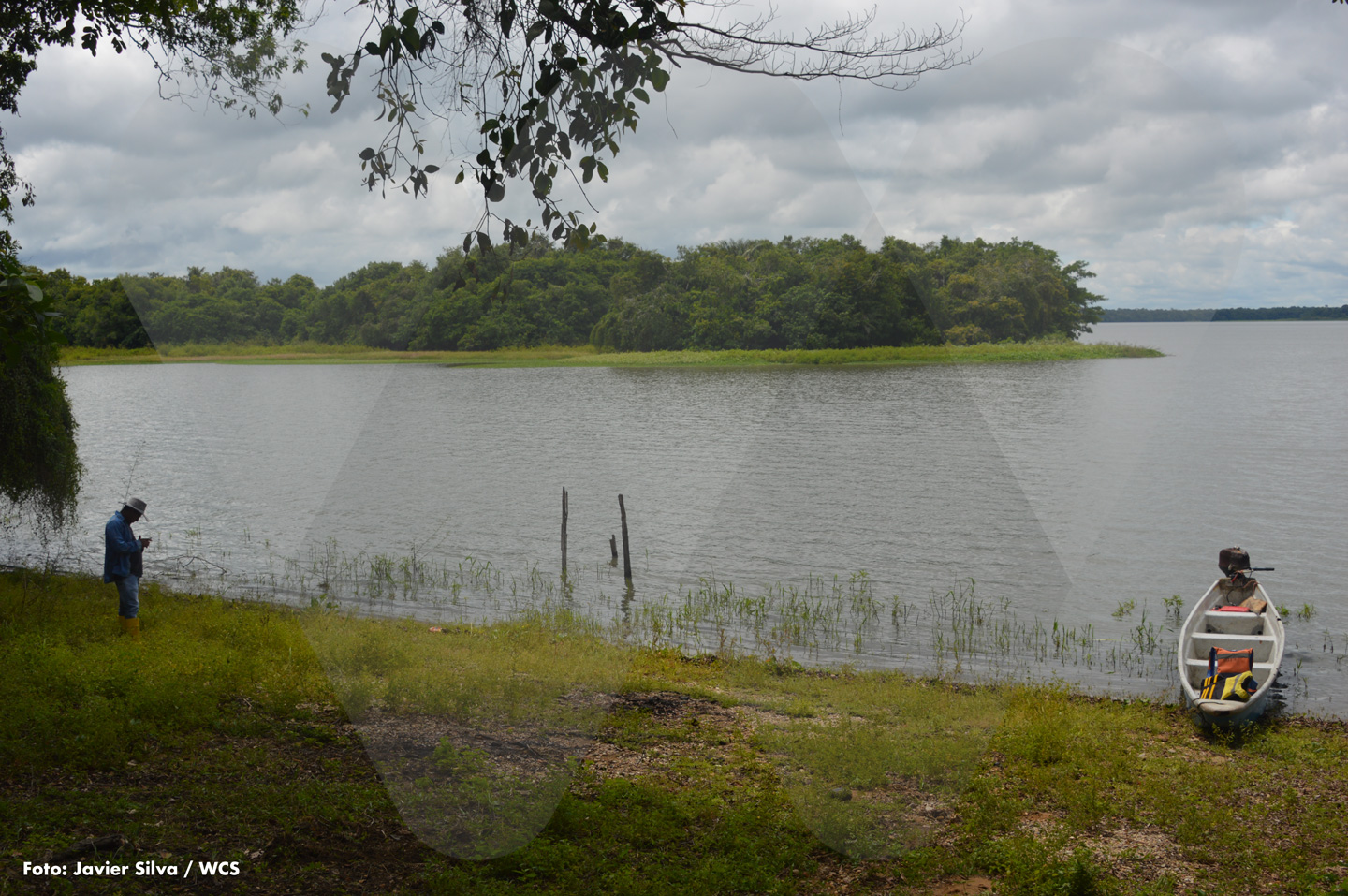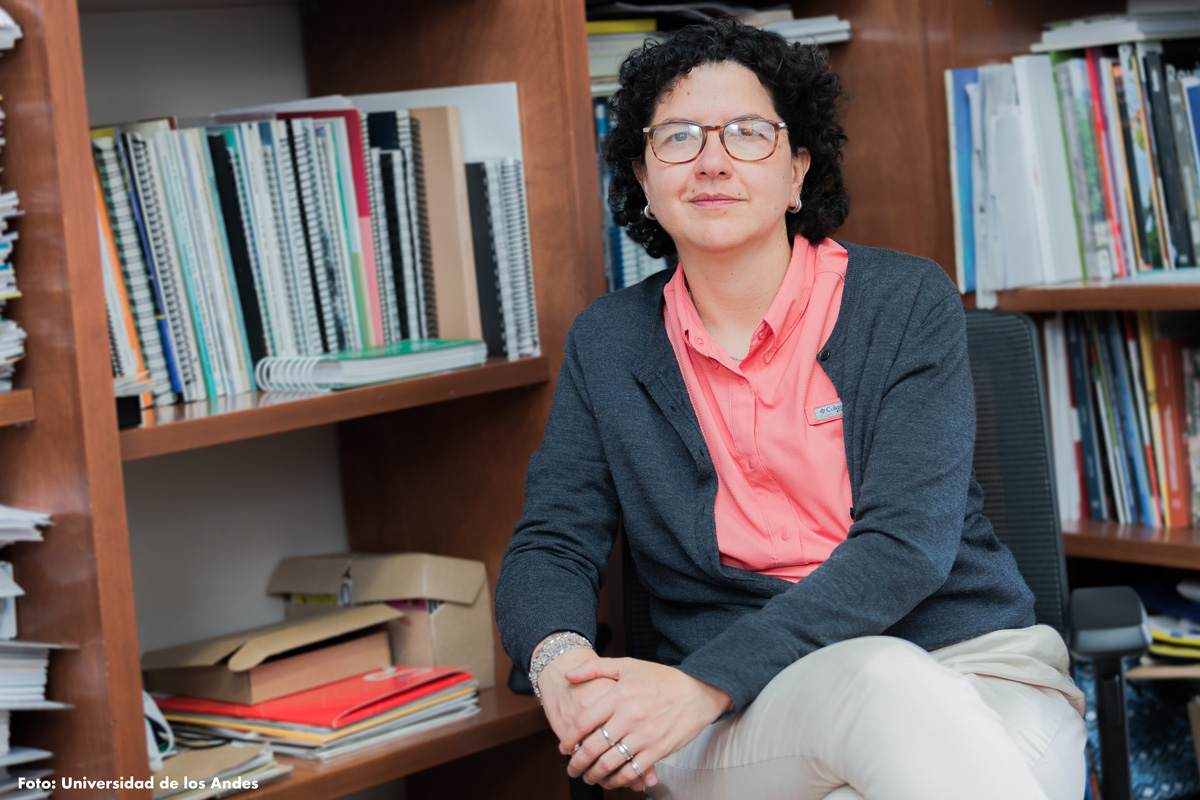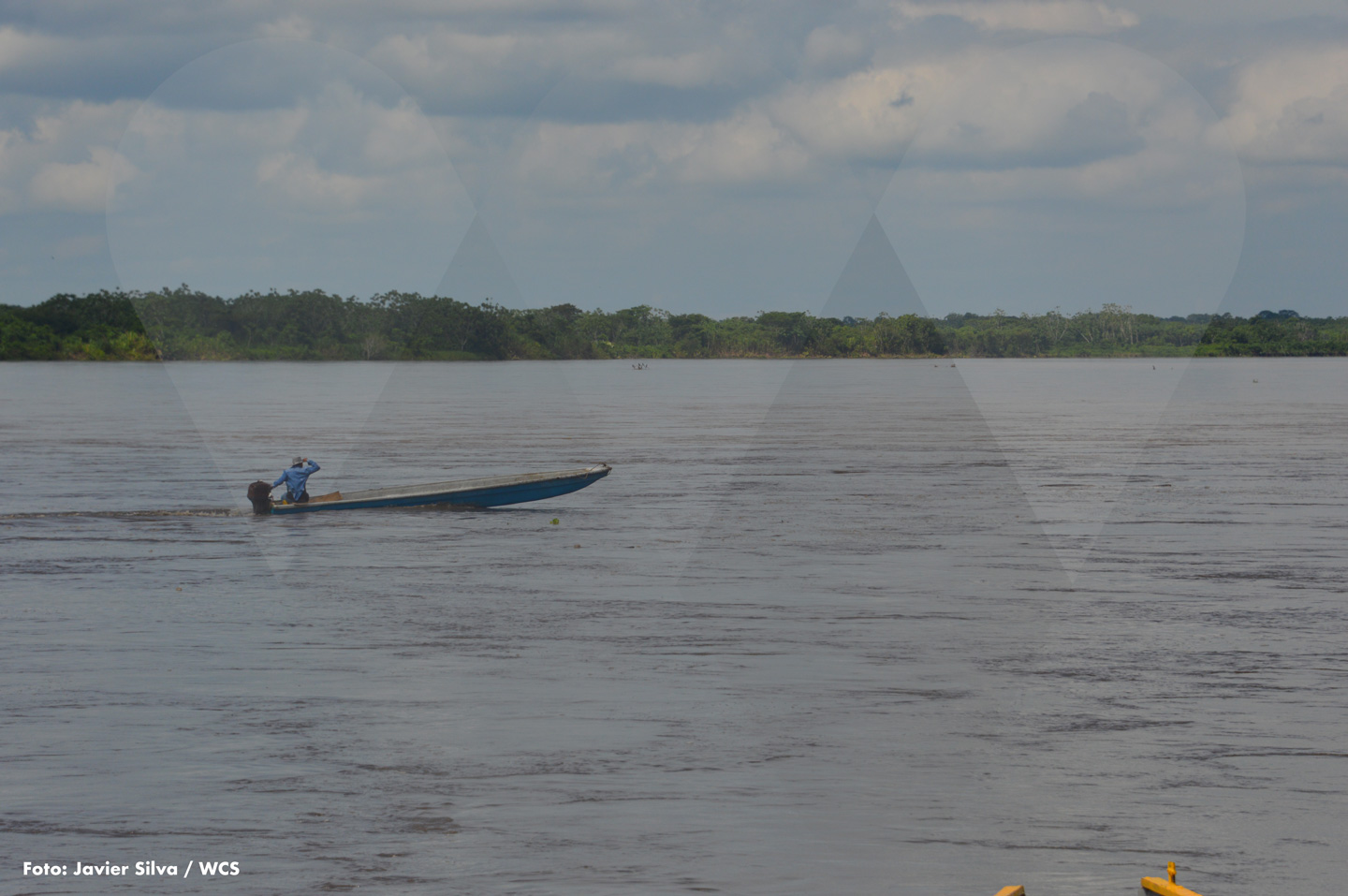Silvia Restrepo, Vice President for Research and Creation at Universidad de los Andes, told us about her vision regarding the document that the International Mission of Wise Men submitted, to define a path in key subjects such as biotechnology and environment, a chapter she coordinated and that draws up a route for the next 25 years, with the purpose of restraining indifference towards our biodiversity.

Knowing our natural patrimony and conserving it, while we reconstruct what we are losing. This could summarize, in very few words, one of the many proposals that the International Mission of Wise Men submitted for the country in connection with Bioeconomy, Biotechnology and Environment, a guideline that explains what Colombia should do and apply to attain appropriate sustainability levels.
Silvia Restrepo, PhD in phytopathology of the Université de Paris VI Pierre Et Marie Curie (France) and presently Vice President for Research and Creation at Universidad de los Andes, coordinated this chapter, also focused on how to adequately take advantage of biological resources.
We talked with her, to hear her opinion and vision in connection with the conclusions reached during the 300 days of work that the writing of this type of route map for the next 25 years took. During that time, she worked with more than 40 national and international scholars (among them the global executive director of Wildlife Conservation Society, Cristián Samper), a group of experts that, besides analyzing purely biological subjects, took into account other equally significant topics such as human development, oceans, water, basic and space sciences and sustainable energy, as well as creative and cultural industries.
Silvia, biologist and expert in molecular and cellular biology, told us that one of the many messages left by this work of discerning the best route for the nation to follow, is the urgent need of beginning to implement a model of growth that abandons the use of fossil energies and non-renewable sources and adopts the application of processes based on the reutilization and sustainable transformation of our nature, in which everything is taken advantage of and used.
But during our conversation, Silvia, expert as few in Colombia in diseases that affect key crops, such as cassava, also explained other details of what the country should do to continue growing, but without indifference towards its enormous natural resources.

The Mission of Wise Men expressed the need for Colombia to know and adequately use its biodiversity. How could this be done? What was the main recommendation?
I always blame the poor financing of science, which is very deficient. And, if that does not change, we will not be able to reach that objective. The first thing we should do is explore and know our biodiversity, but with such few budgets that is not possible. Attempts exist, such as ColombiaBio (a national project led by the Ministry of Environment that aims to promote knowledge and the sustainable exploitation of biodiversity through science and innovation), but many times the lack of money leaves these efforts unconcluded. The reinforcement of the budgets of our research institutes (Ideam, Sinchi, Invemar, Humboldt Institute, IIAP) is urgent, in order for them to assure precisely that: research. Knowledge is the first step to be able to use our resources sustainably.
Precisely. There is a gap, for instance, in the preservation of our national protected areas. National Natural Parks, agency in charge of their administration, cannot work as it should because it does not have enough budget for their maintenance or for research in situ. What was proposed in this connection?
We fell short with this. There is no direct proposal, but I think a solution would be to involve universities with National Parks, or at least with some of them, to fill that existing gap due to lack of research in those areas and of characterization of the flora and fauna living there.
Did the document prioritize strategic ecosystems that the country should protect or give more attention to?
We did not do so, but we did highlight the need for zero deforestation. The Government should not only lower a quota or celebrate a decrease in the figures of destruction of our forests, because we know that this is a problem that builds up year after year. We also included an alert on the protection that should be given to our water resources.
One of the conclusions of the Mission was the need to implement a development model giving priority to bioeconomy. What does this recommendation involve?
It was a challenge to have economists and environmentalists agree. There were mistrusts on both parts. But we finally reached a consensus to say that the basis of all our progress should be supported on the conservation of all our ecosystems because, without them, there will not be any development and, much less, an economic future. We proposed that we should not implement a necessarily national bioeconomy, but regional bioeconomies, whereby each department exploits its own biomasses based on research. In this connection there are, of course, huge differences: a bioeconomy in the center of the country can start tomorrow, because universities are ready. But a bioeconomy for the Orinoquía region is still unrealistic. I insist in that the lack of research budget affects many regions.
Don’t you think there should be a commitment from ordinary people, or from homes, to consolidate this model? Because many people in the country are not familiar with basic issues, such as recycling…
Definitely. This is the time for collective actions. We have been totally absorbed, each one with his interests, but if we want to reach a bioeconomic model, we must start to move and encourage a change of culture towards plants, animals and the rest of the natural patrimony. For instance, people in cities do not value water, do not protect it as they should. A greater conscience should be generated in this and many other vital aspects.
Historically, ministries and other public entities seem to act on their own and there are, for instance, decisions of the Ministry of Mines and Energy that affect what should be implemented or prioritized by the Ministry of Environment and Sustainable Development. Don’t you think decisions should have a cross-cutting nature?
That is true, but we propose something much bigger: that a System of Science, Technology and Innovation should exist in Colombia. The Ministry of Science started off badly, with a minister that faced many problems to validate her legitimacy, but it is there where the development of this system should start to take shape. We could not have bioeconomy, for instance, without the existence of a comprehensive development in science and technology.
How should the gap between politics and science be relieved or reduced? Many times, what is scientifically proven cannot be implemented because, politically, it is not considered convenient or is not understood or is considered unimportant...
We must try to have more science in politics and less politics in science. This should be our motto. Supposedly, the director of an entity like the Academy of Exact, Physical and Natural Sciences should be frequently consulted by the Government on numerous issues. I think scientists many times are formed only for research, but we now know that they should have a political formation as well: go to Congress, know how to communicate with a congressman. Science is lacking a political formation.
What should the role of academy be in all this panorama?
It should serve as a connection between the Government and private businesses. We should be more involved; directors should be able to talk with ministers, to amend or halt decisions.
Is the Government really taking into account the work and concepts issued by the Mission of Wise Men?
Unfortunately, no. When we saw the CONPES document on science and technology, it included a mediocre summary of the concepts submitted by the Mission of Wise Men and lacked important structural and change policies. It only proposed the need to close the gap in the number of doctors and then recommended “the formation of more doctors”. But one moment: structurally, what should we do to attain that purpose? That was never included and it was written out in the Mission of Wise Men document. Our final and general document includes many topics that were ignored.
There was a recurrent topic in the work of the Mission of Wise Men: the challenge faced by the country for the compliance with the Sustainable Development Goals (SDG), that include the eradication of hunger and poverty, the guarantee of a healthy life, education and equality of genders and access to renewable energies, among others. This pervaded or was present in all work groups. What was concluded on this topic?
That the main objective we must aim for is to give all possible importance to education, mainly equitable education focused towards progress. That the formation of teachers and all educators in charge of teaching children from zero to five years of age, a key stage in the intellectual growth of the human being, must be strengthened. Conclusion: this country must first be educated, to be able to begin complying with the rest of the SDGs.
How do you imagine or dream of this country some years ahead?
A country with developed regions based on bioeconomy, where employment and wellbeing are generated, but with this model far from the big cities. I would like to see it in the Orinoquía region or in Chocó, with ecotourism or a sustainable scientific tourism, with exportation of their main products and goods, with regional universities as strong as those of the big cities. And a Government interested in a System of Science and Technology and promoting the creation of autonomous research centers to support the most remote departments.
